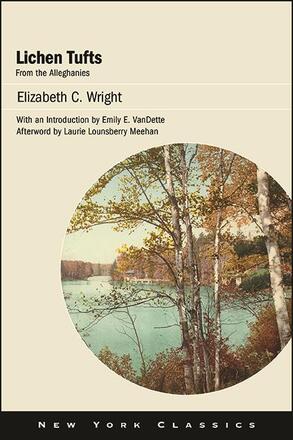
Lichen Tufts, from the Alleghanies
Alternative formats available from:
An important and prescient early example of US environmental writing with a profound sense of consciousness and appreciation for the natural world.
Description
In her 1860 book Lichen Tufts, from the Alleghanies, Elizabeth C. Wright weaves together environmental philosophy, lyrical nature writing, and social consciousness. A graduate of Alfred University, Wright was an activist for women's rights, temperance, and the abolition of slavery. She was a teacher, a botanist, and, later in life, a Kansas homesteader. In Lichen Tufts, Wright urged her readers to cultivate an intimate knowledge of the natural world, reflecting her Transcendentalist belief that an immersive relationship with nature benefits the individual as well as society as a whole. Composed of four essays and forty poems, Lichen Tufts reveals wisdom and beauty in an early example of eco-feminism that highlights the natural world as antidote to society's restrictive gender codes, one that is still relevant today.
SUNY Press brings Lichen Tufts, from the Alleghanies to life for modern audiences, with a recovery edition featuring the 1860 book in its entirety. An Introduction by Emily E. VanDette places the book and its author in the context of nineteenth-century social reform campaigns throughout the "Burned Over District" of western New York. An Afterword written by Laurie Lounsberry Meehan highlights the history of Alfred University and the cohort that influenced Wright's environmental and social reform activism.
Elizabeth C. Wright (1826–1882) graduated from Alfred University in 1855. She was an environmental scientist, educator, author, and social reform activist. Emily E. VanDette is Professor of English at the State University of New York at Fredonia and the author of Sibling Romance in American Fiction, 1835–1900. Laurie Lounsberry Meehan is Librarian and University Archivist at Alfred University.
Reviews
"…Wright's collection of essays and poetry is ripe for scholarly uptake and classroom discussion, particularly in the fields of American literary studies, women's and gender studies, new materialism, and the environmental humanities … this new edition of Lichen Tufts welcomes not just recovery and other scholarly analyses of Wright's work, but also broader investigations into this lesser-studied nineteenth-century community of intellectual and activist life." — H-Net Reviews (H-Environment)